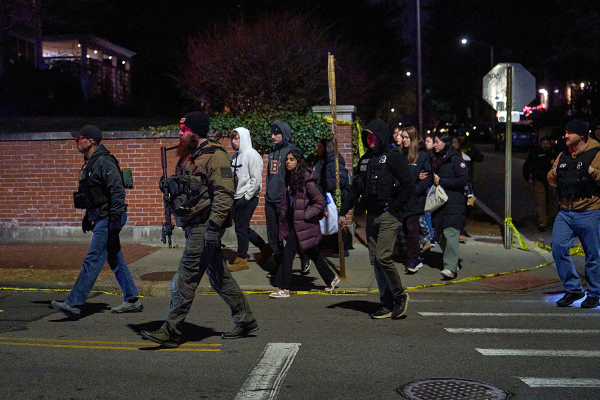Rapper Shai Linne Explains Why He Named Names in 'Fal$e Teacher$'
Rapper Shai Linne, who criticized the "prosperity gospel" and identified popular televangelists like Joel Osteen, T.D. Jakes, Paula White and Benny Hinn as its preachers in his new song "Fal$e Teacher$," explains why chose to name names despite knowing it was "dangerous."
"There's always a danger in naming names," agreed Linne, talking with Russell Moore, Dean of the School of Theology and Senior Vice President for Academic Administration at The Southern Baptist Theological Seminary. Moore hosted Linne for his weekly podcast "The Cross & the Jukebox" on Friday, where they talked about the song on the rapper's upcoming album titled, Lyrical Theology Part I.
"Had I only mentioned the teaching and not particular teachers, there would still be the possibility of agreeing with the song but assuming that this does not apply to these particular people," Linne said, and added that he made efforts to be accurate and not to falsely label people.
Jesus said in Matthew 7:15, "Beware of the false prophets…," Linne continued. We need to be aware of actual people, and "there's Biblical precedence for naming names," he said, adding he had watched the "prosperity gospel" teachers over and over again, and heard their teachings back to back.
Linne said he got many "crazy comments" on his Facebook wall.
Russell asked Linne about a response from Brad Knight, manager and son of televangelist Paula White. The rapper said he was glad that Knight responded. "It put a human face on this, while I'm talking about concepts and ideas and philosophies... In my response, I wanted to affirm his love for his mom, and I mentioned I could relate to that... But at the same time, I wanted to direct focus back to the particular issue and the teachings themselves."
"My song was not about you, your financial status, the genuineness of your faith, your mother's prayers for you or the good things that Paula White Ministries does," Linne wrote in an open letter in response to Knight's criticism. "The song was about the false doctrine that Paula White and others have publicly taught for many years and continue to teach."
Linne said a desire was awakened in him to use hip hop music as a medium to address this issue after he read the book, Health, Wealth & Happiness: Has the Prosperity Gospel Overshadowed the Gospel of Christ?
Asked to define the "prosperity gospel," Linne said, "It's the idea that God's desire for the Christians is material wealth and physical health in this life… It pictures Jesus as not the ultimate goal but a means to material possessions and physical healing."
At the heart of the "prosperity gospel" is the "fallen assumption" that if I do the right things then I will be blessed by God, and if I do the wrong things then I will be cursed by God, Linne added.
Selfism is the fastest growing religion, he said, and quoted from 2 Timothy 3:1-2, "But realize this, that in the last days difficult times will come. For men will be lovers of self, lovers of money…" The "prosperity gospel," he added, is like "lifting up of the self, as though God existed to serve us rather than we existing for His glory and His pleasure."
Linne has received praise from retired Pastor John Piper of Bethlehem Baptist Church in Minneapolis, Minn., for his song. "My, my, Shai, this is good. Seven-minute video on why Shai Linne wrote and raps 'FAL$E TEACHER$'," tweeted Piper along with a link to Linne's video where he discusses the motivation behind the song.
In the video Linne explained that he was inspired to tackle the "prosperity gospel" in the song after receiving mail from some of his fans in Africa discussing the wave of prosperity preachers on the continent whose actions have been hurting desperately poor people.
Asked to share how he became a Christian, Linne said he was born and raised in Philadelphia, Pa., was "seeped in hip hop culture" and had been a professional actor. His mother came to the Lord when he was at high school, and began to talk to him about the Lord. But he saw Christianity as a "White religion" and was "very hostile" towards it. He was instead a believer in a "New Age kind of thing."
In the third year of college, he dropped out, and "that was kind of a big wake-up call for me." Around that time, he met a young lady, who was a Christian and a ballet dancer, while he was staying with a friend in Columbia, S.C. She would hang out with him and his friends, but would not participate in anything sinful.
"God used her witness as well as Scripture," he said.
At a party, when Linne was high on LSD, he felt demonic presence all around him as he looked at all other people there. This brought to his mind some of the things his mom had told him years ago. He realized that leading his life his own way wasn't working, and that he had rejected the Bible without actually reading it. He bought a Bible and began to read it. When he called his mother, she asked him to read the Gospel of John, and he converted in 1999.
Linne released his first album in 2005, and became a full-time musician in 2008.





















